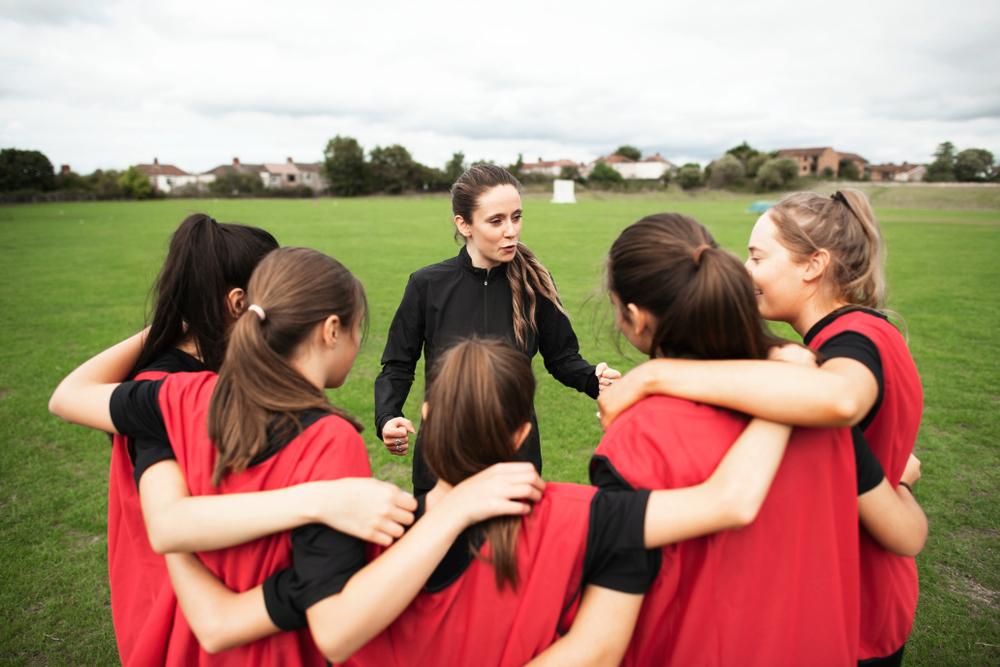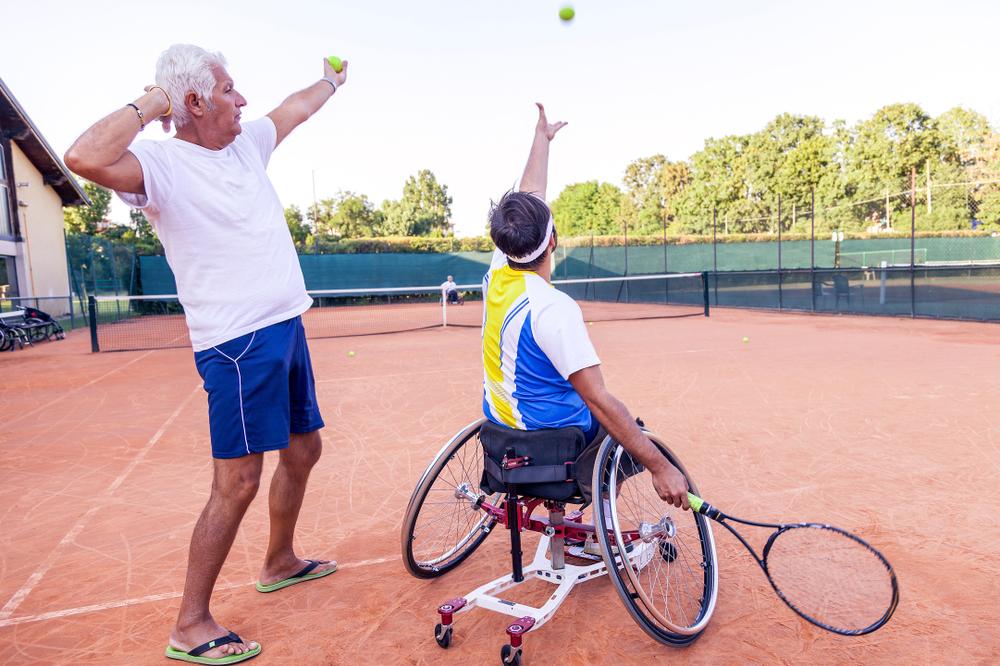 Creating positive impact for your athletes doesn’t mean being a relentlessly perky cheerleader. Rather, it means creating an environment where your athletes feel cared for, excited about their sport, connected to their teammates, and confident in themselves.
Creating positive impact for your athletes doesn’t mean being a relentlessly perky cheerleader. Rather, it means creating an environment where your athletes feel cared for, excited about their sport, connected to their teammates, and confident in themselves.
Here are five areas to focus on when it comes to improving your coaching.
Lead with love
Regardless of your style of coaching when choosing drills, plays, and practice styles, your athletes should always feel as though you care about them. Students reported more life skill and character development when coaches led with compassion.
“Showing love and caring means acting in the best interests of your athletes, which includes discipline when necessary,” explains Wade Gilbert, PhD, a professor at California State University in Fresno and a Team USA Coaching Consultant. “Great coaches show a lot of love for their athletes — it doesn’t mean being positive all the time, it means being genuine and giving people what they need.”
Be authentic
Children are highly tuned to sensing inauthentic behavior, and don’t respond well to a coach who puts on a show of being relentlessly positive. “Kids have a good radar for inauthenticity. They can tell when a coach isn’t being straight with them. Regardless of whether you’re someone who’s super positive or if you’re more sarcastic, it’s important to be genuine,” says Jenelle Gilbert, PhD, a professor at California State University in Fresno. “As long as you’re showing that you care about your athletes, you’re doing the right thing.”
Redefine winning
As a coach, you have the ability to influence your athlete’s concept of success and winning. That means taking the focus away from a ‘must-win’ mentality, and instead, working on developing competency and confidence. Skills mastery not only leads to better long-term athlete development, research has shown that it’s more fun for the athletes (and will keep them in sport for longer) as well.
“There’s nothing wrong with wanting to win,” says Wade Gilbert. “A competitive program is important, but winning doesn’t just mean winning on a scoreboard, it means winning in the long-term. I remind coaches that winning means keeping kids in the sport. We see coaches so focused on winning a game that they lose kids because they’ve benched too many kids, or yelled too much, or made the sport not fun in some way.”
Have a plan
Kids need structure — you can’t show up and wing it at practice or on game day. “You have to have a plan for practice, from beginning with warmups and water breaks, what the drills would be, all of that,” says Jenelle Gilbert.
You can have kids do some leading within this structure, and you can and should be flexible, but kids shouldn’t be nervous showing up to practice unsure of what they’ll be doing. This is especially key in practices that could vary greatly, like cross-country practices that could have anywhere from a 15-minute run to a full hour of running.
Let students lead
Your positive impact might not be in just your leadership — you can also focus on teaching your athletes how to be leaders themselves. “You’ll be surprised how quickly they’ll jump on board when given the chance to be leaders and have autonomy,” says Jenelle Gilbert. “There are so many good lessons you can learn in sports if coaches focus on growing kids as people, not just as athletes. Work to find a balance that’s best for everyone.” That may mean letting your higher-performing athletes work together to push each other, or pairing them off with younger, less experienced athletes in order to put them in mentorship roles.
______
It’s important that athletes feel like you’re someone they can talk to, and it’s equally important for you to remember that your athletes — while they might seem like one large entity as a team, are individuals with different needs and feelings.
“One strategy isn’t going to meet every learner that you have,” Jenelle Gilbert adds. “A teacher doesn’t use just one strategy in the classroom. You don’t need to change your philosophy, just remember that there are different learning styles and work to get to know your athletes.”
“Remember that you’re a person and they’re a person.” Keeping that mentality at the forefront of your mind as a coach is the first step to having a positive impact.



